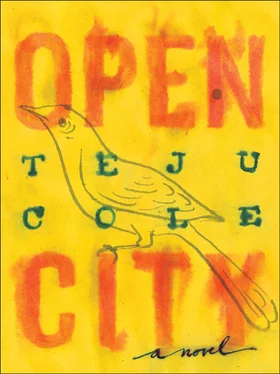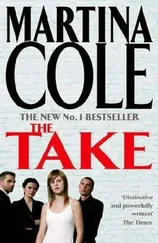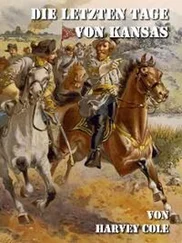The children, for some reason hard to control that day, got increasingly boisterous, and when, in the middle of a chase, one of them reached out a hand and accidentally overturned a serving charger full of jollof rice onto the concrete floor, three of the others fell into a laughing fit. No amount of shushing or threats was sufficient to make them stop, and their laughter rose and bubbled across the somber gathering, causing deep embarrassment to their livid parents. Once or twice, the sound subsided, but then one of them would begin again, and the other three would not be able to resist joining in, and their raucous, heaving laughter went on for minutes. One of the houseboys was instructed to take them to the back of the house, from which, for at least another five minutes, we could hear them chuckling as though possessed. This incident caused the assembled adults obvious discomfort, but it amused me, and it is impossible for me, even now, to think of the events of that day, wreathed as they were in sorrow, without feeling a certain gratitude to those children, all younger than eight, who fell under the momentary spell of mirth and let air into a room that the rites of death had been asphyxiating.
I WAS ALREADY FOURTEEN, NOT ALL THAT YOUNG, WHEN MY FATHER was buried. The memory of the day wasn’t secure, because it was a public event and was as such taken over by other people’s concerns. His death had been private: there had literally been a deathbed (which struck me at the time, because I had only ever thought of the expression as a metaphor). But it was the burial I remembered more, and not the death. Only at the graveside had I felt that absurd sense of finality, the sense that he wouldn’t be getting better, or returning after a few months: the feeling hollowed me out. And while I had the elevated thoughts of someone who was about to become a man, while I nurtured stoicism in myself, and a determination to handle the grief in the right way, I also fell to more childish instincts, so that, at the graveside, part of what I remembered, part of the reel that played in my mind as my father’s body was prayed over, included the ghouls and zombies from Michael Jackson’s Thriller .
In later years, it was the date of the burial, not that of the death, that I marked as an anniversary. I almost always remembered the former, and on May 9 of this year, I was on the 1 train on the way to work when it came to mind that he had been committed to earth for exactly eighteen years. In that time, I had complicated the memory of the day, not with other burials, of which I had attended only a few, but with depictions of burials — El Greco’s Burial of the Count of Orgaz , Courbet’s Burial at Ornans —so that the actual event had taken on the characteristics of those images, and in doing so had become faint and unreliable. I couldn’t be sure of the color of the earth, whether it really was the intense red clay I thought I remembered, or whether I had taken the form of the priest’s surplice from El Greco’s painting or from Courbet’s. What I remembered as long, sorrowful faces might have been round, sorrowful faces. Sometimes, in waking dreams, I imagined my father with coins on his eyes, and a solemn boatman collecting them from him, and granting him passage.
THERE WAS A MAN, I REMEMBER, ON THAT DAY OF THE EIGHTEENTH anniversary, who was moving around the subway cars. He was inspecting the vents above the automatic doors. He wore a dark blue MTA uniform, and carried some sort of counter with him, into which he pressed numbers and which emitted intermittent beeps. I watched him closely, imagining him a spiritual messenger, an angel of some sort, though whether for good or ill, I couldn’t tell, and so focused was he on his task that his methodical examination of each vent did nothing to dissuade me from the fanciful ideas working themselves into my head. I looked up at the vents as we hurtled past the uptown stations, 125th, 137th, 145th, I thought of the final terrible moments in the camps, moments that no one has survived to give firsthand testimony of, when the Zyklon B was switched on and all the human captives breathed in their deaths, and how, while all this was happening in the early forties, my oma was on her way north to Berlin as a refugee, bewildered and frightened as everyone around her was. These were the conversations I would have wished to have with her: about the young men in her town who’d marched off to war, and never come back, or those who had come back eventually — like my opa, about whom I had been told almost nothing — or those who’d been rounded up and sent to Mauthausen-Gusen.
At 157th, an Asian girl who had been drowsing suddenly got up, skittish, doelike, and sprang out of the subway car before the doors closed. Someone else came in and, for a brief, startling moment, I thought I recognized one of the boys who had mugged me. But I was mistaken. They had, of course, been floating in and out of my dreams, and the idea, so distasteful to me at the time, that it could have been worse now seemed the most sensible one. But in those dreams, I fought back. I was more badly injured, but I also beat them to the point of bloodiness. One of them fell, and I set on him, punching his face until it became like red paper under my fists, until he lost one of his eyes. When I woke, the pain of hitting him would become congruent with the ache at the back of my left hand.
I left my seat and went to speak with the MTA official as he was about to push open the door connecting our car to the next. He looked like a Guyanese or Trinidadian Indian — there was a touch of African ancestry in him, I guessed — though he could also have been directly from the Indian subcontinent itself. I asked him about his work. He was an air-conditioning specialist, carrying out temperature checks on the cars. He was friendly, and seemed surprised anyone had noticed him at all.
It is amazing, he said, how a little variation, too hot or too cold, can lead to complaints. We have efficient HVAC systems — that stands for heating, ventilation, and air-conditioning — and in the summer, we try to keep things ten to fifteen degrees cooler than it is outside. We are constantly checking them, so it is a big operation. But of course no one notices the temperature unless it becomes uncomfortable, when the nozzles get blocked, or there’s a local breakdown in the system. And, he added with a laugh, you don’t ever notice your oxygen until it’s gone: something goes wrong with the HVAC, even for fifteen minutes, and people are ready to riot.
I was invited to John Musson’s apartment for a party. It was in Washington Heights, just a little ways north of the hospital. The apartment overlooked the Hudson, Moji said, when she called me, and had a remarkable view, of water and trees and the George Washington Bridge, I simply had to come see it. She did not live with him, having her own apartment in Riverdale in the Bronx, but she spent many nights at his place, she said, and she was co-host of this party. I hadn’t seen her since our day out in the park, but she had called me three or four times, and we had had brief, friendly conversations, usually late at night. Once, she had abruptly asked me how my mother was doing. I was silent, then told her that I didn’t know, that we weren’t in touch. Oh, that’s too bad, she said, in a weirdly cheerful tone of voice. I remember meeting her. She was such a nice person.
In the days leading up to the gathering, I suppose I made some effort to edge out of it, but then the date arrived, in the middle of May, and I found that I was without a good excuse and would have to attend. That day, I left work early, around five-thirty. I had time to kill, so instead of taking the subway, I decided to walk. I came around from Harkness to the intersection of Broadway and St. Nicholas, and the streets, as expected at that hour, were invaded in every lane and in both directions by impatient drivers. Mitchel Square Park, where the two main streets crossed, a vantage point of less than an acre, was dominated by a gently rising rock outcrop, from which one could read the overlay of buildings that had brought the medical campus to its current form. The new constructions not only sat close to the older buildings but were in many cases grafted right into them, shiny and strange as prosthetic limbs. Milstein, the central hospital building, was an amalgam of Victorian stone and a recent triangular frontage of glass and steel that gave it the aspect of a glittering pyramid in a dour and stately setting.
Читать дальше












